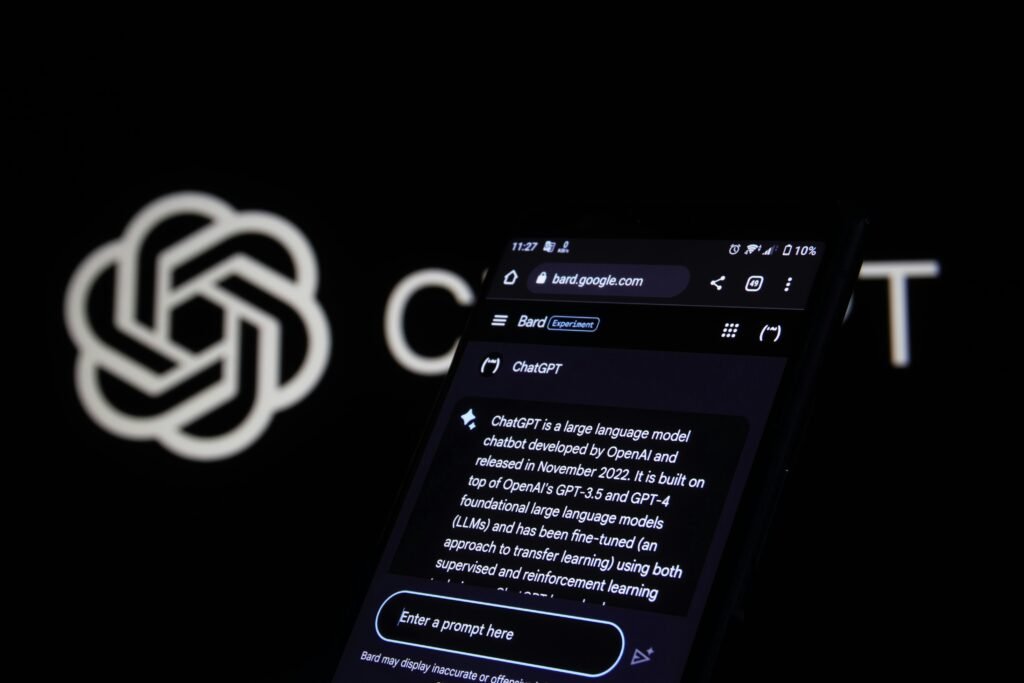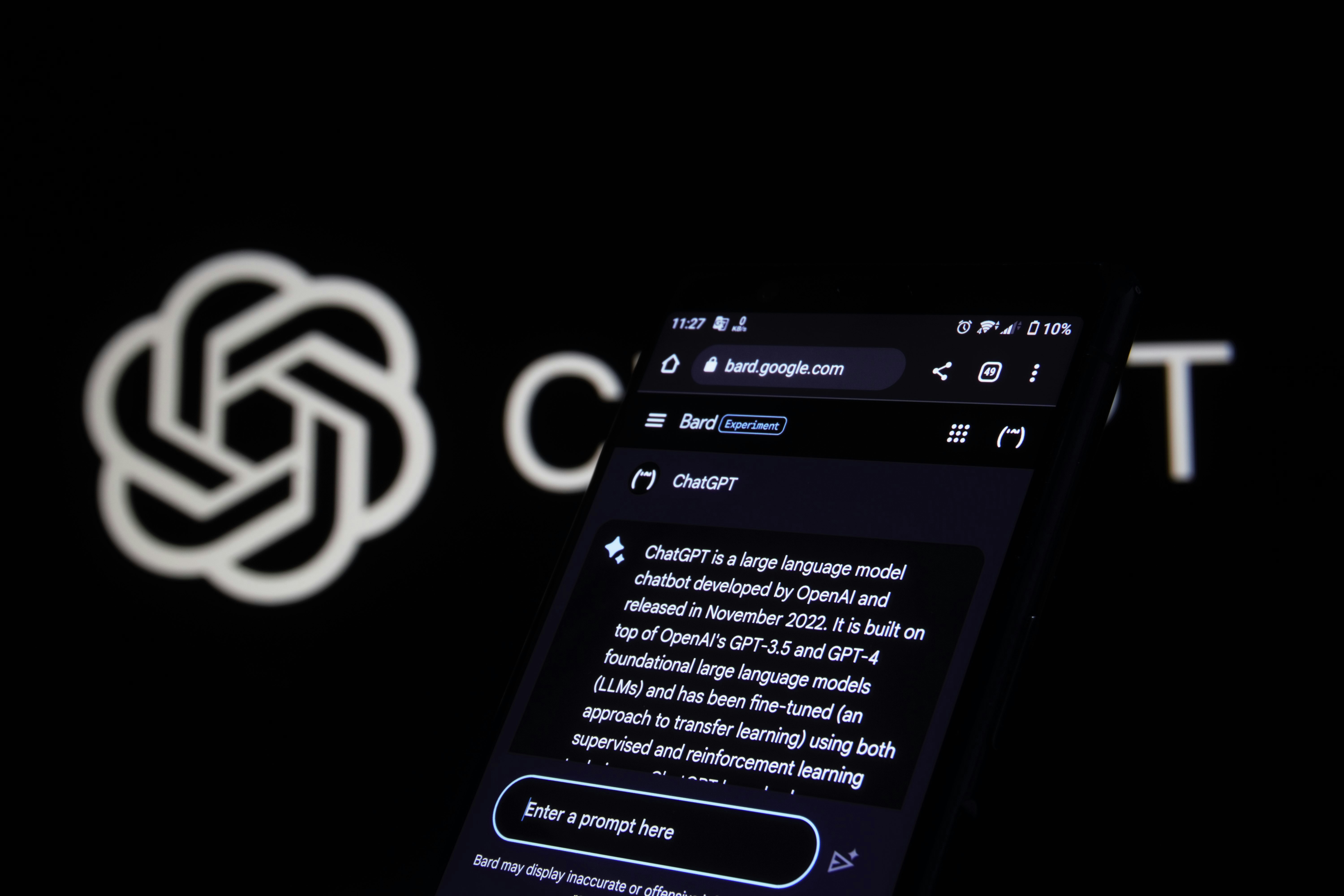Introduction: A New Era of Information Retrieval
The landscape of information retrieval is undergoing a dramatic transformation, driven by rapid advancements in technology. Traditional search engines, most notably Google, have long been the cornerstone of how individuals access and retrieve information online. By indexing vast amounts of data and employing complex algorithms, these platforms have enabled users to find relevant content in a fraction of a second. However, as artificial intelligence (AI) continues to evolve, a new challenger has emerged in the realm of information retrieval: conversational AI models like ChatGPT.
ChatGPT marks a transition from traditional search methods to a more interactive and conversational approach to accessing information. Unlike traditional search engines that return a list of links based on keywords entered by a user, ChatGPT engages in dialogue by interpreting the context and intent behind a query. This approach not only enhances the user experience but also allows for nuanced understanding, making information retrieval more efficient and user-friendly.
This emerging technology raises important questions about the future of traditional search engines. As AI systems become adept at processing natural language and providing tailored responses, one must consider: Can these innovative solutions replace established platforms like Google? Will users gravitate towards AI-driven conversational models for their information needs, or will traditional search engines continue to hold their ground? The answers to these questions could shape the future of how knowledge is accessed and consumed in our digital age.
As we delve deeper into this discussion, it is essential to critically examine the strengths and limitations of both traditional search engines and conversational AI models. The implications of this evolution extend beyond mere convenience; they have the potential to redefine how we interact with information in an increasingly digital world.
How Traditional Search Engines Work
Traditional search engines, such as Google, operate through a complex mechanism designed to index and retrieve information from the vast expanse of the internet. The essential strength of search engines lies in three critical processes: crawling, indexing, and ranking. These processes work together seamlessly to deliver the most relevant results, ensuring users find exactly what they’re looking for with remarkable efficiency. Each of these processes plays a critical role in determining how users receive information in response to their search queries.
The initial step, crawling, involves automated bots known as spiders or crawlers that traverse the web, visiting pages and gathering data. These crawlers systematically follow links from one webpage to another, allowing them to discover new content and update existing information. This extensive web of connections enables the search engine to maintain a continuously updated database of webpages.
Once the crawlers have gathered information, the next phase is indexing. During this process, the search engine analyzes and stores the collected data in a structured format, enabling quick retrieval. This indexing stage encompasses a variety of elements, including content, keywords, and metadata. The goal is to create a repository that accurately reflects the content of every indexed webpage, allowing the search engine to deliver relevant results efficiently.

Finally, traditional search engines use intricate algorithms to evaluate indexed pages and rank them based on their relevance to specific search queries. The ranking algorithms consider numerous factors, such as keyword frequency, site authority, and user engagement metrics. This multifaceted approach ensures that users receive the most pertinent results at the top of the search results page, based on their search intent.
By understanding how traditional search engines operate, users can better navigate the digital landscape, optimizing their search queries to achieve more effective results. This foundational knowledge is essential in a world where searching for information has become integral to daily life.
The Rise of AI Language Models
Artificial Intelligence (AI) language models, exemplified by tools such as ChatGPT, represent a significant advancement in technology. These models utilize sophisticated algorithms rooted in natural language processing (NLP) and machine learning to understand, generate, and engage in human-like text-based interactions. The foundation of AI language models lies in their ability to process vast amounts of textual data, enabling them to learn patterns, vocabulary, and context that are integral to human language.
Natural language processing employs a range of advanced techniques that empower machines to not only understand but also effectively manipulate human language, bridging the gap between technology and human communication. This discipline includes tasks such as tokenization, parsing, and semantic analysis, aiding AI models in comprehending the structure and intent behind the words. Through supervised and unsupervised learning, these models analyze the relationships between words and phrases, ultimately improving their predictive capabilities. As users interact with AI language models, the systems adapt and refine their responses, making them increasingly versatile in understanding straight inquiries or more complex nuances in conversation.
ChatGPT, specifically, leverages a transformer architecture that is notable for its attention mechanisms. This enables the model to concentrate on specific segments of the input text during processing, resulting in a more relevant and context-aware output. When users pose questions or engage in dialogue, ChatGPT generates responses based on not only the immediate context but also the broader conversational history it has access to, thus mimicking human-like discourse. Overall, AI language models are designed to continuously learn and evolve, improving their proficiency as they accumulate more interactions. This continuous learning process positions them as powerful tools that can transform traditional searching and content generation methods.
Comparing User Experience: Search Engines vs AI
The user experience when interacting with traditional search engines, such as Google, significantly differs from that of AI conversational agents like ChatGPT. Both platforms are designed to retrieve information; however, their methods and effectiveness vary greatly, influencing users’ satisfaction and perception of information retrieval.
Traditional search engines function by allowing users to input queries, generating a list of linked results. This list consists of webpages containing relevant content based on algorithms that evaluate numerous factors such as relevance, authority, and popularity. While users often appreciate the breadth of information and options available through a search engine, they may experience frustration sifting through multiple results to find precise answers. This process can lead to information overload, causing a decline in user satisfaction when the desired information remains elusive.
Conversely, AI conversational agents provide a more streamlined experience. Users interact with the AI through natural language queries, receiving direct answers or engaging in a dialogue that mimics human conversation. This immediacy can enhance user satisfaction as the AI consolidates information, presenting it in a more accessible format. For example, if a user asks a question about a complex topic, the AI can parse the information and deliver a synthesized answer without requiring the user to follow links and read through content independently.
There are situations in which traditional search engines may perform better than AI. For instance, when a user seeks nuanced opinions or in-depth analysis on specific topics, search engines often provide diverse viewpoints from various sources. This diversity can enrich a user’s understanding, something that may be limited in the responses generated by AI. Ultimately, the choice between traditional search engines and AI conversational agents often depends on users’ needs for depth versus convenience, demonstrating how user experience shapes our information retrieval preferences.
Case Study: When to Use ChatGPT Instead of Google
As the digital landscape continues to evolve, users increasingly encounter scenarios where ChatGPT outperforms traditional search engines like Google. One notable example is in the realm of condensed summaries. Consider a college student who is overwhelmed with a multitude of research articles for a paper. Instead of inputting a string of queries into Google and sifting through countless search results, the student opts for ChatGPT. By simply asking for a brief summary of the key points of each article, the AI provides a curated and succinct overview, saving precious time and reducing cognitive overload.
Similarly, when individuals seek personalized recommendations, ChatGPT shines by offering tailored responses based on user preferences and specific queries. For instance, a traveler looking for unique vacation spots may feel lost amidst the vast information available online. However, when they engage with ChatGPT, they can specify their interests—such as adventure activities or cultural experiences—and receive customized suggestions. This targeted approach not only enhances the relevance of the recommendations but also fosters a more satisfying search experience.
Moreover, professionals in various industries have found value in using ChatGPT for generating ideas or drafting content. A marketing manager tasked with brainstorming concepts for a new campaign can leverage ChatGPT’s capabilities to generate an array of innovative ideas within moments. This instant feedback mechanism allows for a more collaborative and dynamic thought process that traditional search engines cannot replicate.
These scenarios illustrate the practical advantages of employing ChatGPT in specific instances. Whether it’s swiftly collating information, receiving personalized guidance, or facilitating creative brainstorming, the AI-driven assistance provided by ChatGPT offers a distinct edge over traditional searching methods. Adapting to these opportunities can significantly enhance the efficiency of users seeking information in today’s fast-paced world.
Limitations of ChatGPT
While ChatGPT represents a significant advancement in artificial intelligence, it is not without its limitations. One of the primary drawbacks lies in its reliance on pre-existing data input. The model generates responses based on the information it has been trained on, which includes a wide range of internet texts, but it does not possess the ability to independently verify facts or access new data beyond its training cut-off in October 2023. Consequently, users may find that some responses are outdated or lack the most current information necessary for informed decision-making.
Additionally, ChatGPT lacks real-time updates, making it less suitable for inquiries that require the latest developments or ongoing events, such as breaking news or emerging trends. In scenarios where real-time information is critical, traditional search engines may still offer superior results by indexing and retrieving the latest content from across the web. This is particularly evident in fields such as finance, health, or technology where timely data can significantly impact the relevance of the information provided.
Moreover, occasional inaccuracies in ChatGPT’s responses can hinder its effectiveness. Although the model is designed to provide coherent and contextually relevant answers, it can generate false or misleading information. Users should therefore exercise caution, particularly when relying on the AI for expert advice or crucial decisions. In such cases, it may be advisable to consult verified sources or engage in traditional search methods to ensure accuracy and reliability.
In understanding these limitations, users can better navigate when to leverage ChatGPT’s capabilities and when to revert to conventional search practices, thereby maximizing the benefits of both technologies while mitigating potential drawbacks.
The Future of Searching: A Hybrid Approach
The evolution of digital information retrieval has ushered in a new era in which traditional search engines and advanced AI models, like ChatGPT, could coexist and potentially enhance user experiences through a hybrid approach. This paradigm shift is reflected in the current trends where the capabilities of AI are increasingly being integrated into search functionalities. Rather than viewing AI and traditional search engines as adversaries, it is more productive to consider how these technologies can complement each other in meeting user needs.
Traditional search engines, which have dominated the landscape for decades, excel at indexing vast amounts of web content and returning results based on algorithms that prioritize relevance and authority. However, as users increasingly seek more personalized and conversational interactions, AI models are emerging as powerful tools to fill this gap. The natural language processing (NLP) capabilities of AI can address user queries in a more intuitive and context-aware manner, allowing for deeper engagement.
Future scenarios may include a significant overlap between the two technologies. Imagine a search environment where AI models analyze user intent and context before delivering results that are curated from both traditional data sources and conversational outputs. This hybrid model could streamline the search process, offering users quick, precise answers alongside links to comprehensive resources, thereby enriching the overall search experience. Furthermore, as AI evolves, the collaboration could lead to more sophisticated understanding of user needs, enabling predictive analytics to anticipate inquiries before they are expressed.
Given these possibilities, businesses and individuals must adapt to this unfolding landscape. As traditional search continues to innovate and AI models become more integrated into everyday searching processes, the potential for a hybrid approach appears robust. This synergy could essentially redefine how information is accessed, ultimately benefiting users through enhanced flexibility and accessibility in their search endeavors.
Expert Opinions: What Tech Leaders Are Saying
The emergence of AI-driven conversational models like ChatGPT has sparked a lively discussion among technology leaders regarding the future of search technology. Many experts express a blend of optimism and caution, recognizing that while these models herald a transformative phase in information retrieval, they may not entirely supplant traditional search engines. For instance, Sundar Pichai, CEO of Google, has remarked, “While AI enhances our ability to find information, the fundamental principles of search engines, such as relevance and accuracy, remain integral to the user experience.” This reflects a consensus that AI can complement rather than replace conventional search methodologies.
On the other hand, tech visionary Elon Musk has suggested a different perspective, positing that systems like ChatGPT may redefine how users interact with information. He stated, “The future of searching will likely pivot towards more intuitive and conversational interfaces, allowing for a more interactive knowledge experience.” Musk’s view underlines the potential for AI to transform user engagement, yet also emphasizes the necessity for a robust framework to ensure the reliability of such interactions.
In summary, expert opinions reflect a pivotal moment in the evolution of search technologies. While some believe that ChatGPT will dramatically alter how individuals seek information, others maintain that traditional search engines will continue to play a vital role, serving as a complementary avenue in an increasingly sophisticated landscape of search methodologies. The ongoing dialogue among tech leaders showcases the dynamic interplay between innovation and tradition within this critical domain.
Conclusion: The Way Forward in Information Retrieval
As we reach the conclusion of our exploration between ChatGPT and traditional search engines like Google, it is essential to reflect on the implications of these advancements in information retrieval. The emergence of AI technologies has instigated significant changes in how individuals seek and consume information. While traditional search engines utilize algorithms to provide users with a list of relevant links, AI-driven conversational models, such as ChatGPT, emphasize personalized and interactive engagement.
One of the foremost considerations in this discussion is the potential paradigm shift it presents for users. As AI systems continue to evolve, the reliance on conventional search methods may diminish. Users might find themselves gravitating towards AI models that offer tailored responses to queries, thereby fostering a more efficient information retrieval process. This transition raises questions regarding the role of traditional search engines in a landscape increasingly dominated by AI capabilities.
Furthermore, the incorporation of AI in information search not only enhances user experience but also challenges the traditional metrics by which information relevance is assessed. With algorithms becoming more sophisticated in understanding natural language and context, there lies the opportunity for a more intuitive search experience. However, this shift necessitates that users remain critical of the information provided, ensuring the evaluation of sources remains a priority.
Looking ahead, it is evident that both traditional search engines and AI platforms have significant roles to play in the realm of information retrieval. It is unlikely that traditional searching will vanish entirely; instead, we may witness a hybrid model where users harness the strengths of both worlds. As the landscape of information continues to evolve, users must stay adaptable in their approaches, embracing technologies that best meet their needs while remaining conscious of the foundational principles of effective searching.

